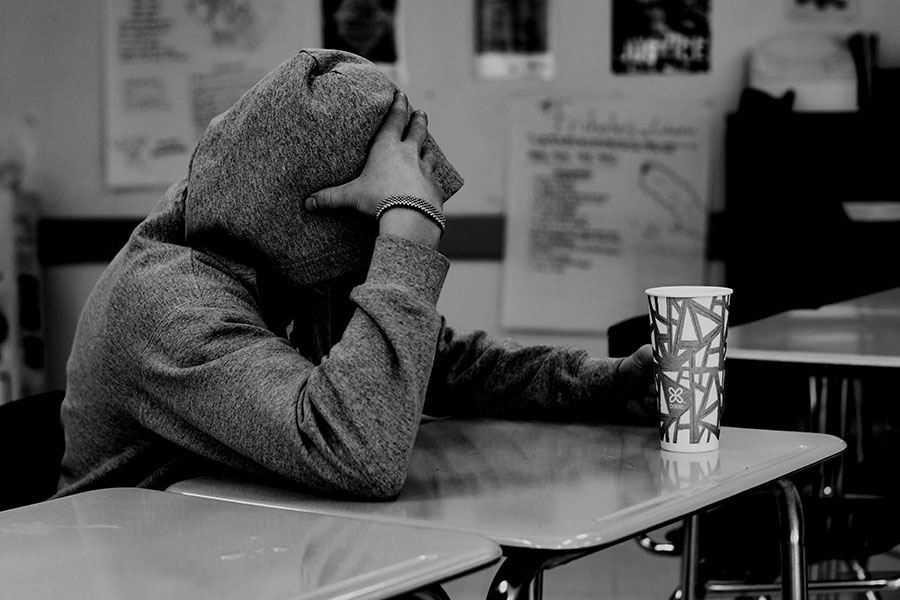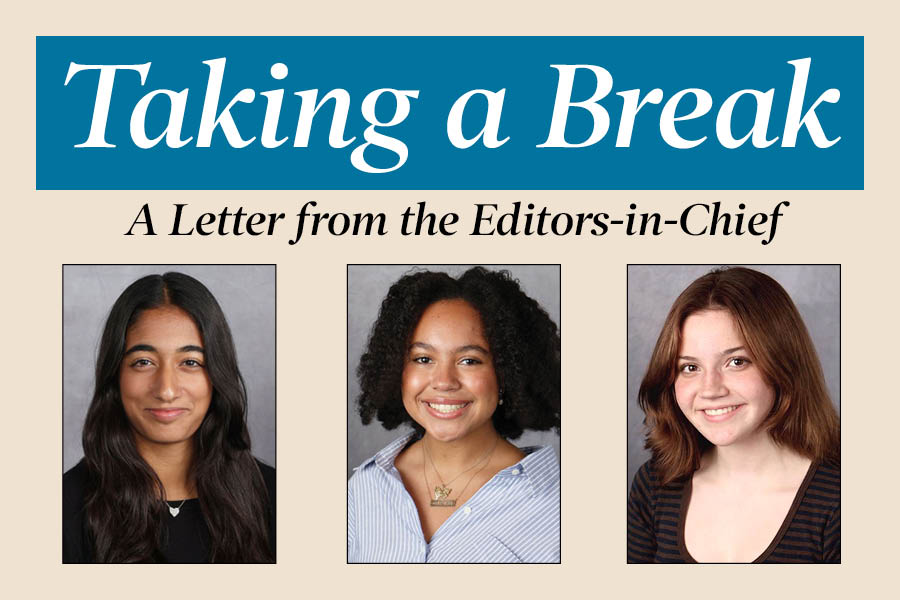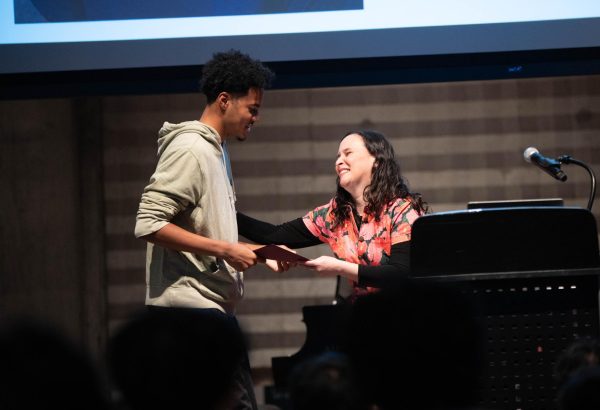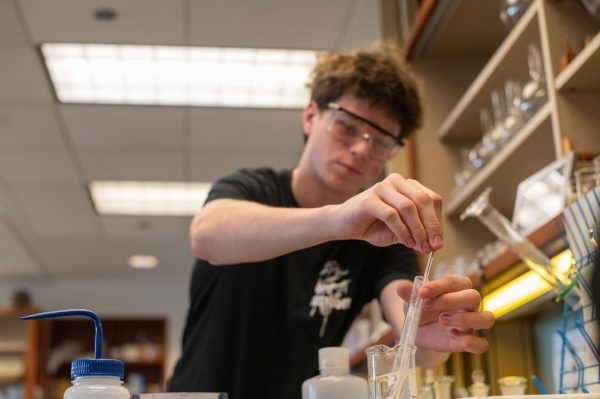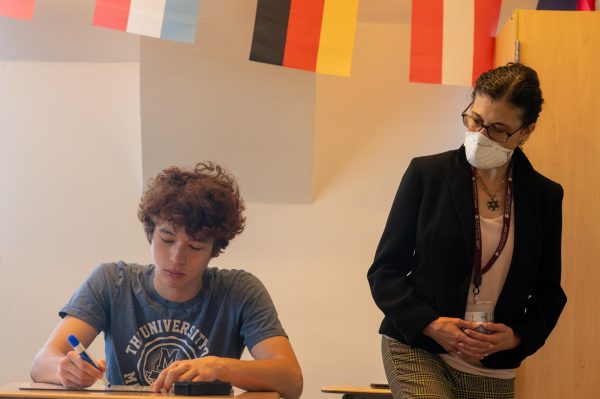Lab students experience more depression, discrimination than national average, survey shows
Photo illustration by Ellis Calleri and Henry Benton
This year’s student wellness survey had overwhelmingly negative results, especially in terms of anxiety, depression, and discrimination.
March 23, 2023
Anxiety and depression symptoms among Lab’s high school and middle school students are higher than national averages, and Black and multiracial students are most likely to report low equity and inclusion, according to results in the 2022 Health and Wellness Survey.
The survey results, which were announced March 2, reported that over one in four Black students report experiencing discrimination on the basis of their racial and ethnic identity, and over 30% of Lab students report a “low desire to be at school.”
The survey was conducted in October by the new survey vendor Authentic Connections, with 87% participation among students in grades 6-12. This year’s results combine middle and high school responses, different from previous years. Within the high school, participation was lowest in grade 12 at 68% and highest in grade 10 at 87%.
Title IX Coordinator for Lab Betsy Noel said she was not surprised by the results, given her experience with the Lab student population and the constant concern around mental health among the student body.
“We already knew that we had a significant portion of our student body that is struggling with mental health difficulties, and that hasn’t changed in a substantive way,” she said. “We were previously above the national benchmark with rates of anxiety and depression and we continue to be above the national benchmark with rates of anxiety and depression.”
U-High counselor Camille Baughn-Cunningham said that students’ low desire to be at school is likely caused in part by the pressure of parents and adults at school as well as dealing with a difficult social environment. The Wellness survey reported that 23% of students experience hyper-parenting over academic grades, 4% more than the national norm.
With regard to Black students and multiracial students reporting low equity and inclusion, Dr. Baughn-Cunningham said the first step to making these students feel a greater sense of belonging is hearing their experiences.
“I hope that some of the events of this year will play a role in hearing the day to day experience of many of these students,” she said. “The better we know what’s happening, the better we are hopefully able to make some changes.”
She said that an individual’s peers can play the biggest role in making them feel unwelcome at school.
“It’s not always these kind of big incidents that are the most hurtful. It’s the numerous smaller incidents, the accumulation of things, that becomes unbearable on a given day,” she said.
Ms. Noel said that addressing mental health difficulties, particularly anxiety and depression, is difficult because they are so multifactorial. Despite this, there are ways the school can help students by using the focus areas as determined by Authentic Connections.
“We have a huge issue with anxiety but we’re not going to address it by prescribing anti-anxiety medication,” she said. “We’re going to do it by addressing low equity and inclusion, ethnic discrimination, high school standards.”
Dr. Baughn-Cunningham said that a big resource is using the people at school for support.
“Having the unconditional support of an adult in your life, but specifically in the school building, helps to buffer some of those symptoms, the anxiety and the depression,” she said. “For other resources, I’m thinking specifically about peer leaders and other peer groups that are training to be in that supportive role.”
She said the school has been trying to incorporate mental health education into the resources they provide for students.
“It’s making sure that just as students are learning about all of these wonderful academic subjects, that they’re also learning about the hallmarks of self-care — knowing the importance of sleep, and knowing the importance of socializing and having down time,” she said.
A correction was made March 27 at 10:55 a.m. to Ms. Noel’s title.



